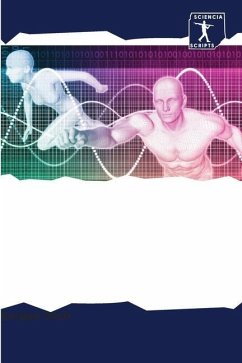
Moral Code About Sports In The World
Typologies
Versandkostenfrei!
Versandfertig in 6-10 Tagen
47,99 €
inkl. MwSt.

PAYBACK Punkte
24 °P sammeln!
Sport contributes to improve the relationship between individuals, it is a socio-cultural activity that allows personal enrichment by integrating communities, becoming a source of health and well-being.It is essential that athletes recover and preserve moral values by respecting rules and fair play. To encourage, promote and contribute to the realization and fulfillment of this purpose, this Moral Code is adopted, establishing guidelines for conduct and individual and collective behavior fundamental in sports management. Sport as a universal phenomenon allows the strengthening and family integ...
Sport contributes to improve the relationship between individuals, it is a socio-cultural activity that allows personal enrichment by integrating communities, becoming a source of health and well-being.It is essential that athletes recover and preserve moral values by respecting rules and fair play. To encourage, promote and contribute to the realization and fulfillment of this purpose, this Moral Code is adopted, establishing guidelines for conduct and individual and collective behavior fundamental in sports management. Sport as a universal phenomenon allows the strengthening and family integration through a healthy life. It is important to prevent, regulate and punish the misconduct of athletes, coaches, managers, private and public entities that promote sports and their relations with each other, avoiding situations of xenophobia, violence in sports stadiums, as well as discriminatory behavior.Sport is a valuable tool for the integral education of the human being, but it has adark side in which the practitioners of sports show for their eagerness of triumphs manifest socially undesirable actions. The practice of sports should be understood as an element that generates physical, psychological and social benefits; however, sports practices based on anti-values are becoming more and more frequent, highlighting intolerance, the use of drugs to improve performance, vanity and deceit.The book presents a series of typologies that analyze behaviors in sports.












